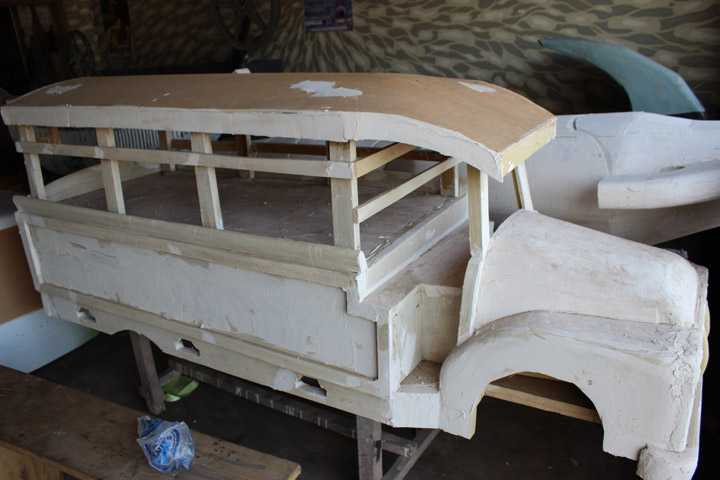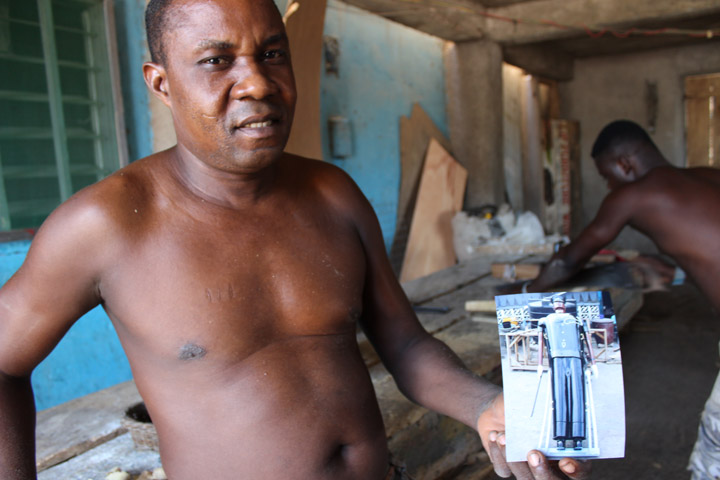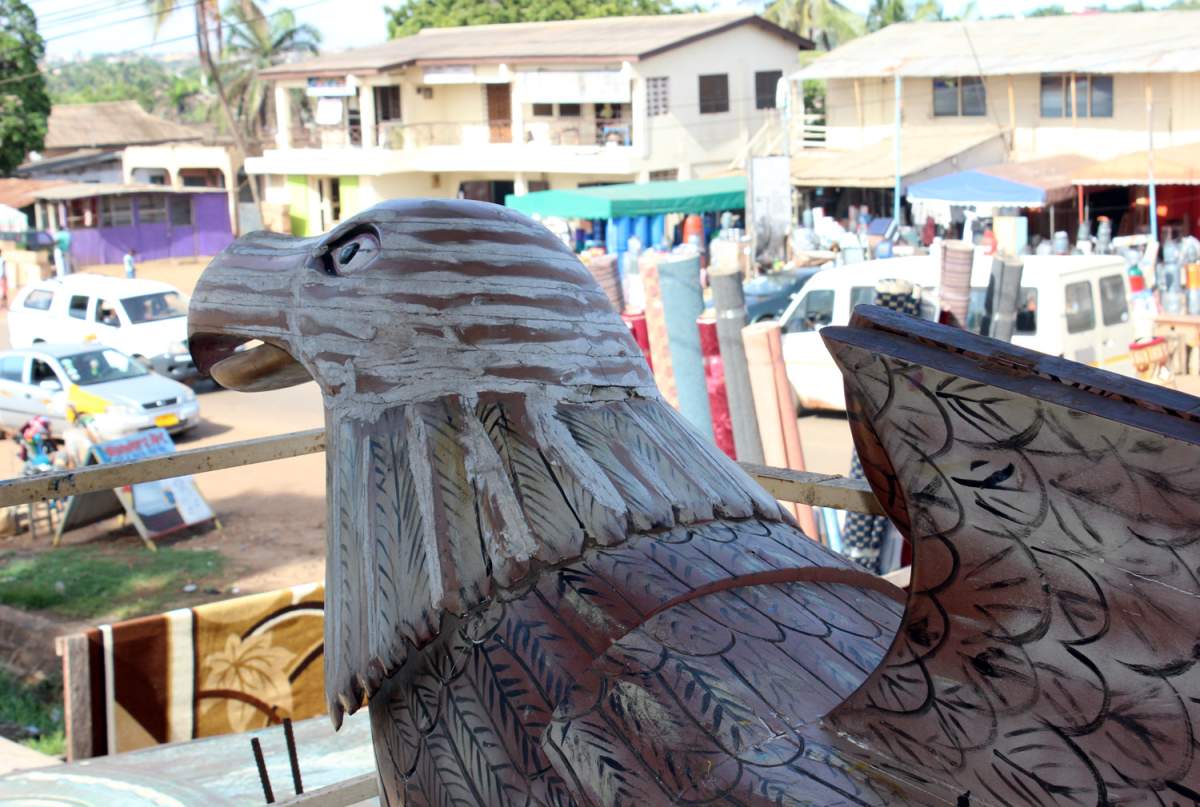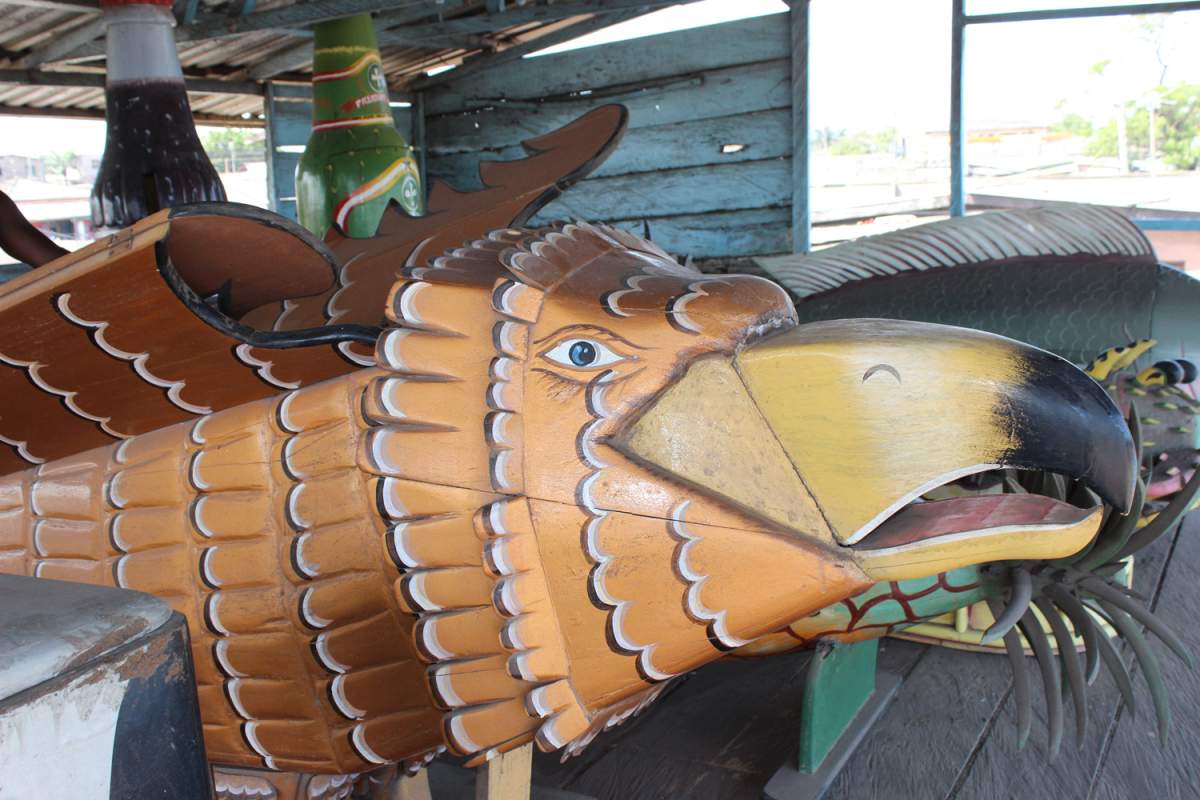TESHIE, Ghana – Style is a major part of life in Ghana, so much so that Ghanaians take it to the grave.

In Ga culture, coffins are customized to represent the character or the occupation of the person who has passed away.
Families spare no expense in sending their loved ones to the beyond in an airplane, a chicken, a boot, or some other object that held meaning in their life.
Coffins can cost upwards of 2500 Ghanaian cedis (CAN$1250), or more than six times the annual income of the average Ghanaian.
Like many of the other coffin designers in Teshie, Anang is in the family business. His grandfather Seth Kane Kwei began building custom coffins, or “fantasy coffins,” as they have come to be known, in the 1950s.
Now, Anang owns the Kane Kwei Carpentry Works on a coastal road east of Accra. From this small workshop comes coffins that have been featured worldwide in museums, festivals and commercials.
Anang has just returned from Milan design week, where he displayed some of his work, including a giant Campari bottle.
Carpenters at his workshop in Teshie are busily building 24 pieces to send to Denmark for the Images Festival in August.

Get daily National news
He even has a piece on display at the Royal Ontario Museum in Toronto – a fish – brought in by curator Sylvia Forni.
“We create it out of the mind,” says Anang when explaining how he plans his designs. (Ashley Terry, Global News)
Just down the road, coffin competitor Daniel Mensah is building a lion.
A local leader who was courageous and brave has passed away, and his family has asked Mensah to build a coffin to match.
Mensah and his apprentice are shaping the head of the lion-shaped coffin out of wood, and carefully attaching the pieces to the rounded body on another table.
This is one of thousands of coffins that Mensah has created in his 13 years in the profession. He is a mixture of artist and craftsman, shaving pieces off the lion’s head with ease.
“Sometimes you can draw if before,” says Mensah, explaining how he plans his designs. Other times he just starts building, he says.
Linus Mensah, sitting nearby, boasts about the recent works of art his brother has created.
He shows pictures of his former creations: a soccer boot, a hammer, a gun, a ship, a chicken, a camcorder, a stereo, a mobile phone.
“Last was a policeman,” Linus says.
Daniel Mensah shows the policeman coffin he made for 2500 cedis (CAN$1250). (Ashley Terry, Global News)
Daniel says the policeman coffin cost 2500 Ghanaian cedis. Some of the other coffins in the workshop cost between 1000 and 1800 cedis.
“People spend the money because of paying their last respects to their family,” says Samuel Afotey, one of Mensah’s competitors a few minutes down the road.
Coffin-making is Atofey’s family business as well. “I started when I was very young,” he says, explaining that his father, Paa Willie, taught him the tools of the trade.
Afotey has been building coffins for 20 years. He even has designs for what he wants his own coffin to look like, but is keeping them a secret.
































Comments
Want to discuss? Please read our Commenting Policy first.